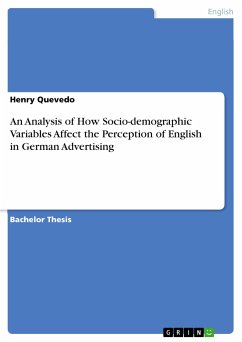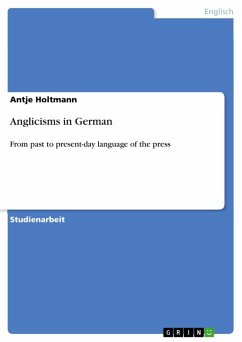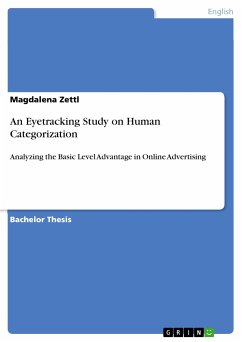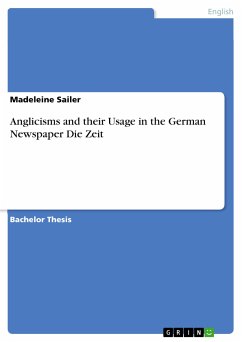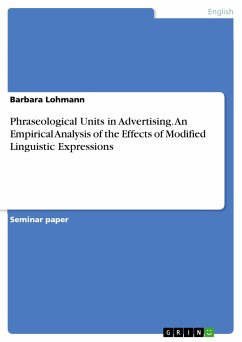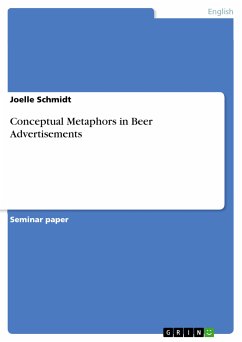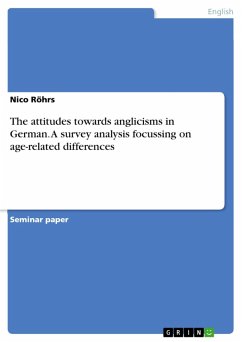
Anglicisms in German Advertising Slogans (eBook, PDF)
Development and Function

PAYBACK Punkte
0 °P sammeln!
Seminar paper from the year 2013 in the subject English Language and Literature Studies - Linguistics, grade: 1,0, University of Trier, language: English, abstract: For quite some time, advertising is a gateway for anglicisms into the German language. The VDS (Verein Deutscher Sprache/ Association of German Language) also shares this opinion. They say that the main transmitters for anglicisms in Germany are the mass media and the advertising and entertaining industry. Although anglicisms belong to the most explored aspects of advertising language, there haven't been many empirical studies yet....
Seminar paper from the year 2013 in the subject English Language and Literature Studies - Linguistics, grade: 1,0, University of Trier, language: English, abstract: For quite some time, advertising is a gateway for anglicisms into the German language. The VDS (Verein Deutscher Sprache/ Association of German Language) also shares this opinion. They say that the main transmitters for anglicisms in Germany are the mass media and the advertising and entertaining industry. Although anglicisms belong to the most explored aspects of advertising language, there haven't been many empirical studies yet. Their proportion in a temporal comparative and in connection with various product groups is rarely studied in the German-speaking area. Especially the researches of Dagmar Schütte and the database slogans.de offer a basis to investigate these questions. In this paper, it will be mainly referred to slogans since they appear in every kind of media and because they are the main representatives of the trends in the advertising language. First the evaluation of Schütte (1996), which reaches until 1991, should be checked. Then it should be examined whether the increase of English slogans continues onwards in the 1990s and the 2000s. Furthermore the sectoral distribution of English slogans will be analyzed. In order to provide a prospect to the future, this work will also contain a chapter about the new language trend in German advertising. Schütte defines an anglicism as a linguistic sign, consisting wholly or partly of English morphemes, regardless of whether it is connected to a common meaning in the English language usage or not. In the following, this definition is adopted, what means that the term anglicism is generally an English coined word or expression.
Dieser Download kann aus rechtlichen Gründen nur mit Rechnungsadresse in A, B, BG, CY, CZ, D, DK, EW, E, FIN, F, GR, HR, H, IRL, I, LT, L, LR, M, NL, PL, P, R, S, SLO, SK ausgeliefert werden.




